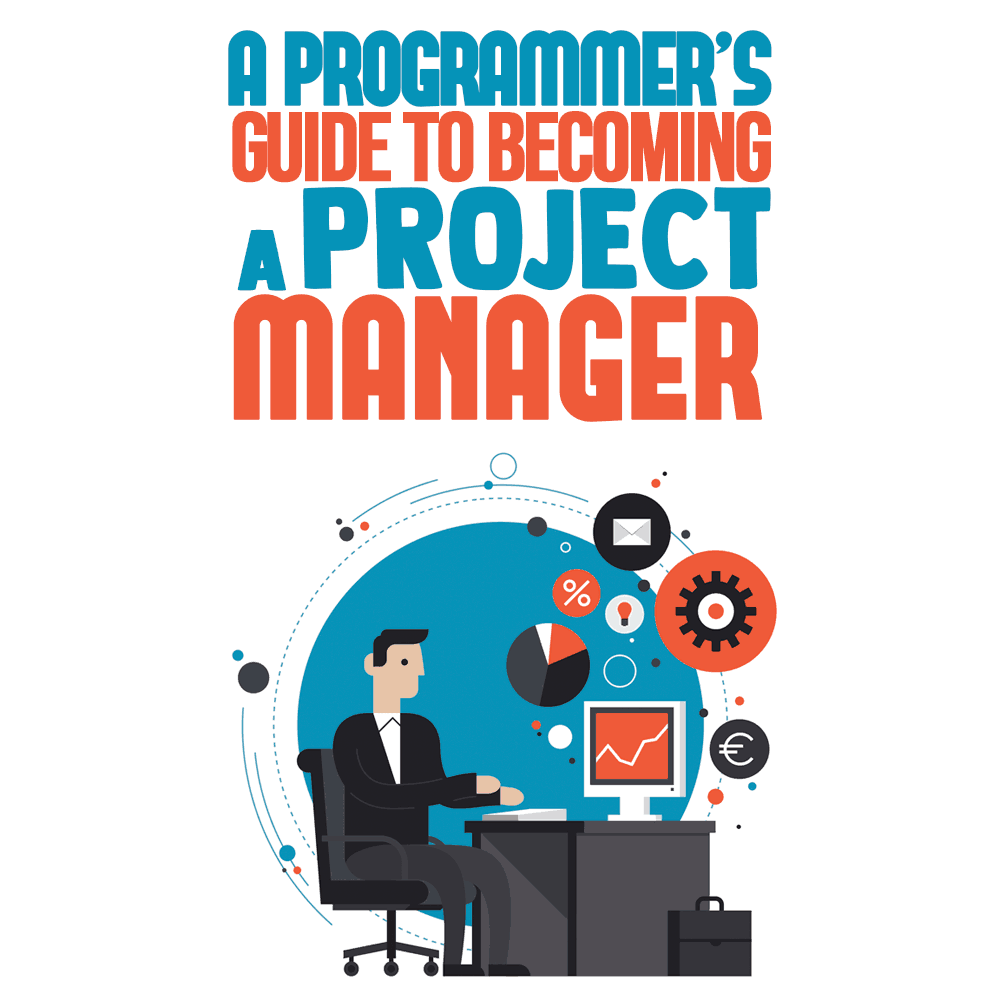 Digital project management is a growing field; therefore, many companies are in need of a good project manager (PM). If you’re a programmer, you’re already accustomed to working with digital tools, outside clients, tight-knit teams, and competing deadlines. That means you could make a great PM, if you set your mind to it and are ready for the challenge.
Digital project management is a growing field; therefore, many companies are in need of a good project manager (PM). If you’re a programmer, you’re already accustomed to working with digital tools, outside clients, tight-knit teams, and competing deadlines. That means you could make a great PM, if you set your mind to it and are ready for the challenge.
In a world where more and more people are choosing programming as a career, you might be looking for a way to stand out. Or maybe you are tired of debugging code and optimizing user experience (UX), and are looking for a different kind of challenge. Not only do you have the right skills to be a PM, but you also most likely have an edge over other PMs who don’t have the depth and breadth of software knowledge that you do. Reshape your programming career; consider becoming a PM.
There are concrete transferable skills that you, as a programmer, can offer to the field (the details of which I will go over below). I also have some recommendations for how to make the leap from programming to PM more comfortable.
But first, let’s look at a few important questions: What is project management? What does it have to do with programming? And, is this a career evolution that interests you?
Why Project Management?
Put simply, a PM shepherds a project from start to finish, overseeing everything from brainstorming ideas to delivering final results. That can mean a lot of different things to a lot of different people.
Some of your main concerns may include overseeing Agile workflow, problem-solving on the fly, optimizing UX, reporting and analytics, selecting and teaching project management software to teams and/or new hires, continuous integration, website coding, integrating feedback, and more. No matter what kind of project you are managing, you can probably count on some of those being important to you.
IT Specialization in Project Management
Depending on what level of PM you are, you can expect to make anywhere from $44,000 to $135,000. According to Glassdoor, the average is about $90,000 a year right now. That means you have plenty of room to grow in a PM role.
Something that affects your salary is whether you are considered a generalist (jack-of-all-trades) or a specialist. As a programmer, you are most likely a specialist in areas like digital projects, software, and coding, which will work to your benefit as a PM. You most likely have knowledge of different software and hardware that companies find invaluable—information that they can’t quickly learn from a book or online.
Consider this: PMs can come from anywhere, be it communications, retail management, humanities, or psychology studies. Anyone with the drive to lead can be a PM. But not just anyone can design software and apps, A/B test landing pages for ads, or code a website from scratch. These are hard skills that will make you an in-demand hire.
Why? Every client has a need for digital work, even if it’s just a need for search engine optimization (SEO) expertise or basic website edits. You can be a project leader who can also take on the nitty-gritty complexities of these tasks, therefore making you worth more in your role.
Financial and IT industries tend to pay more for PM services overall. That means any programmer will have an edge in IT project management when it comes to salary negotiations and expectations. Most IT project managers (ITPMs) will want to at least understand the basics of web design and development, which, again, puts any programmer a hop and a step above the rest.
Programmer to PM: Transferable Skills
Q: Why should programmers consider a switch to PM?
A: Because they already have what it takes to do the job!
Much of what you do, know, and learn as a programmer is useful as a PM. Not only will these desirable and transferable traits help you do the job, but they will also be handy talking points in any PM-oriented interview.
1. Product-Test-Optimize Feedback Loop

When transitioning to a DPM position, try highlighting examples of where you excelled in this process, like lead time optimization or a keen eye for debugging.
2. Website Coding
Your ability to read and write code will be uber useful for anyone looking to hire a good DPM/PM. Even if the project you are managing isn’t website-specific, having someone on board who knows HTML5/CSS3 for minor tweaks and adjustments is endlessly valuable nowadays.
Being able to imagine and design a website is an easy example of how you understand the kinds of production cycles that will be useful in project management, too.
3. Familiarity With Dashboards and Alerting Systems
Dashboards and alerting systems are probably second nature to you as a programmer. However, not all companies or brands are as familiar with this transformative method of work organization. Even familiarity with basic workflow assistants like Asana, Slack, and Trello are going to make you look like a PM superstar to most potential employers.
4. Understanding User Needs/UX
As a programmer, you need to guess what your audience needs, make it, beta test for feedback, and then rebuild accordingly. Having the foresight and wherewithal to know what different users need, when they need it, and under which circumstances is the essence of project management.
What does the audience need? How do we get there? Now, how do we improve? Underscore your experience with this process as something that innately makes you PM-ready.
5. Data Analytics
Interpreting analytics. Compiling and organizing data. Comparing progress made to target measurables. You will be doing a lot of the above as a DPM/PM. In fact, this is a key way that you gauge success in the PM world. Clients will want to see results, and understanding the basic nature of analytics, and the different techniques to harvest data, will keep them happy.
6. PM Methodologies
Many of the organizational/workflow methodologies of project management come from software development. This means you will be familiar with the different steps in the process, even if the client and product are unfamiliar to you.
Understanding, and having been part of, workflow frameworks like Waterfall, SCRUM, Kanban, XP, iterative development, feature-driven development, and any combination of those listed have already made you very well-equipped for project management.
How To Give Yourself the Edge
Programmers would make great PMs, there’s no doubt about that. But how do you go about convincing a potential employer of that? Here are a few ways you can give yourself a leg up when applying for positions in project management:
- You can get a certificate in project management. While this isn’t vital, it certainly never hurts to have, particularly if you don’t have much (or any) project management experience already. If nothing else, it shows that you are serious about the job and that you are willing to learn.
- Have a niche/specialty. This will not only make you more valuable in any workplace, but it will also better narrow down which DPM jobs are best suited for you. Pick one hard skill and one soft skill, and flex them as what makes you stand out in your industry. Have concrete examples to back it up. Almost every PM interview will ask what you, specifically, can bring to the table.
- Market yourself as a DPM or an ITPM. Don’t underestimate yourself. Just because your job title is more aligned with “programmer” right now, that doesn’t mean your résumé, cover letter, and personal branding shouldn’t include “project manager” in every pitch. Highlight the ways you instigate ideas, follow through until completion, and demonstrate leadership. That’s “PM” for you!
- Brush up on interview skills. Whether you are interviewing for programming, project management, or programming project management, you have to ace the art of the interview. Not only will this assist you with any planned career shift, but it will also encourage you to develop a range of skills that will be undeniably useful to you at some point or another.
- Be engaged in your industry. Retweet or reply to tastemakers in your field to show that you’re paying attention to incoming trends. Engage with programming influencers on social media (I love @codinghorror, @MinaMarkham, and @OdeToCode right now) to show your involvement with thought leadership and innovation. All of this elevates you from peon to person of interest. Remember: PMs need to be ahead of the curve, not struggling to catch up.
Hone your “soft skills.” Much of programming and IT work is considered a hard skill (for example, knowing C#, C++, Java, and HTML5), but don’t neglect your “soft skills” (like communication, leadership, and creativity). Failing to invest in your soft skill development is one of the most common mistakes programmers make. Having the perfect blend of both is what will make you a great DPM. In fact, it will make you a stand-out programmer, if you decide that you are content where you are for now.
- Never stop learning. Follow project management blogs. Read PM books. Learn a new coding language or workflow methodology that could help with future PM opportunities. Have a passion project where you can test out and hone skills you don’t get to touch upon at your 9-to-5 job. Keep up with advancements in areas you are already familiar with. Keep up with industry news and updates. Be a sponge, not a brick. Potential employers will appreciate a PM who takes the burden of training and education upon themselves.
Start Your Career as a PM
Whether you are looking for a change of pace or you just want to advance a particular skill set, a career in project management can be a great next step for any programmer. With your deep technical knowledge, and a dash of interpersonal skills, you could start a new career as a PM, an ITPM, or a DPM today.

 Hone your “soft skills.” Much of programming and IT work is considered a hard skill (for example, knowing C#, C++, Java, and HTML5), but don’t neglect your “soft skills” (like communication, leadership, and creativity). Failing to invest in your soft skill development is one of the
Hone your “soft skills.” Much of programming and IT work is considered a hard skill (for example, knowing C#, C++, Java, and HTML5), but don’t neglect your “soft skills” (like communication, leadership, and creativity). Failing to invest in your soft skill development is one of the